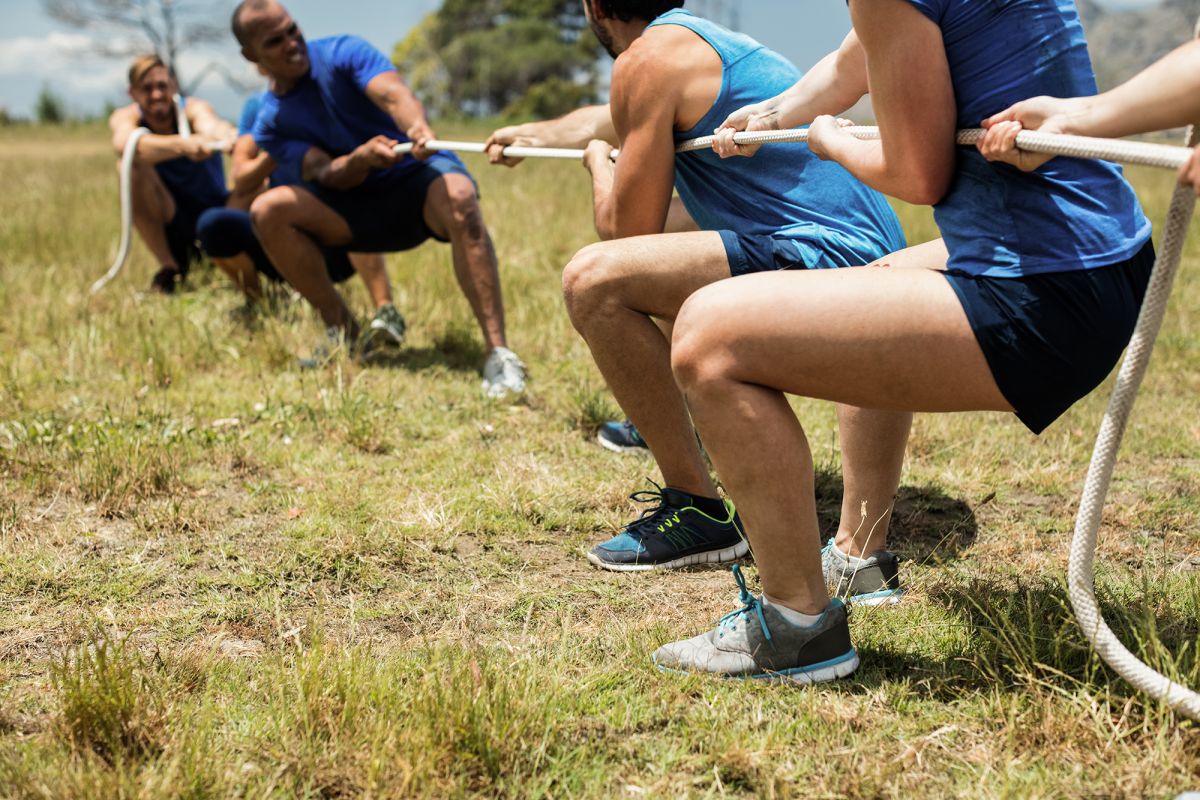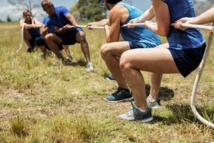And according to German sports psychologist Oliver Stoll, athletes in individual sports have an advantage over those from team sports who can only train in small groups, if at all.
Stoll acknowledges that those from athletics don't have the tracks and fields available, and swimmers can't train in the pools, but that nonetheless "team sports athletes are much worse off.
"Nothing at all is going for them. Except from being online or can playing the garden with their families," he said.
Some football clubs like Bundesliga champions Bayern Munich have resorted to cyber training and others have permission to be at the training ground in small groups.
Individual sports athletes have also had to change their training routines but at least decide on their own how to proceed, with motivation being the key factor.
"The question is why I do sport? If I am intrinsically motivated I do it for the sake of the activity, because I love it. An award is first of all no factor," Stoll said.
"When I am extrinsically motivated I do it because of the result," he said, referring to promotion into another league, a winners' party, a finisher t-shirt or a medal.
Stoll, who has been working with the national diving team since 2008 and took part in the Hawaii ironman in 1988, said that intrinsically motivated athletes have a clear edge at the moment, with events cancelled and no one knowing when leagues can resume.
Stoll said it helps to be "intrinsically motivated and active because you love it, and are not looking at a special award directly related to it."
Top athletes such as race walker Christopher Linke, who came fourth at last year's world championships in Doha, don't necessarily fall into that group.
Linke readily admitted he has completely lost his motivation and doesn't know what he is training for.
"I am not an athlete who likes to train without goals. I don't go to training because I enjoy it so much but because I know it is part of being able to achieve a top result," Linke said.
Hurdler Pamela Dutkiewicz, a 2017 worlds bronze medallist, said: "In sports, goals are clearly defined, and linked with a certain day and even time. I adhere to the guidelines ... But the aimlessness of not knowing exactly what will happen when, or at all, is really difficult."
Stoll meanwhile said that it is also possible to run a marathon even without a competition, looking at those - mainly amateurs - who have prepared for all those spring races over 42.195km which have been cancelled.
"You can have the aim of running 42km. And if it is important to prove that you can run 42km you don't need a competition. If you want to," Stoll said.
Stoll acknowledges that those from athletics don't have the tracks and fields available, and swimmers can't train in the pools, but that nonetheless "team sports athletes are much worse off.
"Nothing at all is going for them. Except from being online or can playing the garden with their families," he said.
Some football clubs like Bundesliga champions Bayern Munich have resorted to cyber training and others have permission to be at the training ground in small groups.
Individual sports athletes have also had to change their training routines but at least decide on their own how to proceed, with motivation being the key factor.
"The question is why I do sport? If I am intrinsically motivated I do it for the sake of the activity, because I love it. An award is first of all no factor," Stoll said.
"When I am extrinsically motivated I do it because of the result," he said, referring to promotion into another league, a winners' party, a finisher t-shirt or a medal.
Stoll, who has been working with the national diving team since 2008 and took part in the Hawaii ironman in 1988, said that intrinsically motivated athletes have a clear edge at the moment, with events cancelled and no one knowing when leagues can resume.
Stoll said it helps to be "intrinsically motivated and active because you love it, and are not looking at a special award directly related to it."
Top athletes such as race walker Christopher Linke, who came fourth at last year's world championships in Doha, don't necessarily fall into that group.
Linke readily admitted he has completely lost his motivation and doesn't know what he is training for.
"I am not an athlete who likes to train without goals. I don't go to training because I enjoy it so much but because I know it is part of being able to achieve a top result," Linke said.
Hurdler Pamela Dutkiewicz, a 2017 worlds bronze medallist, said: "In sports, goals are clearly defined, and linked with a certain day and even time. I adhere to the guidelines ... But the aimlessness of not knowing exactly what will happen when, or at all, is really difficult."
Stoll meanwhile said that it is also possible to run a marathon even without a competition, looking at those - mainly amateurs - who have prepared for all those spring races over 42.195km which have been cancelled.
"You can have the aim of running 42km. And if it is important to prove that you can run 42km you don't need a competition. If you want to," Stoll said.









 Home
Home Politics
Politics











